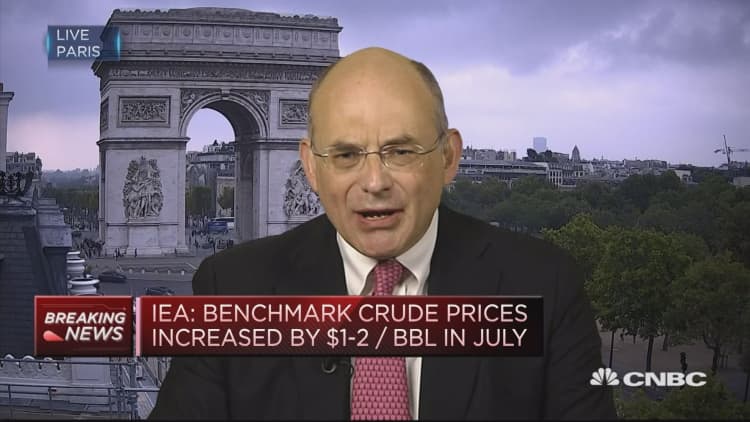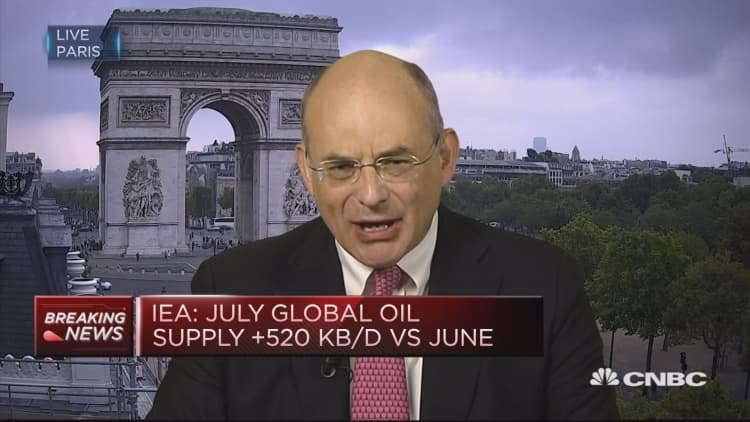
Oil producers are losing their resolve to cap output just as their supply cuts are beginning to achieve their goal of rebalancing an oversupplied market, the world's leading energy watchdog said Friday.
The warning came after the 14-member OPEC reported its combined oil production rose for a fourth-straight month in July, despite its pledge to remove 1.2 million barrels a day from the market. The jump was largely due to rising output from two members exempt from the accord, but many participating countries are still pumping above the levels they agreed to last winter.
"There would be more confidence that re-balancing is here to stay if some producers party to the output agreements were not, just as they are gaining the upper hand, showing signs of weakening their resolve," the Paris-based International Energy Agency said in its monthly report.
OPEC's compliance to the deal slipped to a new low of 75 percent in July, the IEA estimated. Adherence among a group of non-OPEC exporters that also agreed to limit output stood at 67 percent.
The output cuts by OPEC and other producers including Russia helped to reduce stockpiles in the OECD, a group of 35 mostly developed countries, by 500,000 barrels in the first half of 2017, IEA said. But inventory levels are still 219 million barrels above the five-year average. OPEC is trying to drive stocks down to that level.

"We should remember that although stocks are beginning to fall, they're falling from a very great height," Neil Atkinson, head of the oil industry and markets division at IEA," told CNBC on Friday.
"If OECD stocks keep falling at the kind of rates we've seen in the second quarter, it'll take until the early part of the next year before they get back down to the five-year average."
Oil prices are poised for a second-straight weekly decline as the market continues to question OPEC's ability to rebalance the market.
To be sure, the world consumes more oil in the second half of the year, which helps to shrink oil stockpiles on the demand side.
Atkinson also noted that Saudi Arabia has committed to cutting exports in August and September, a sign that some producers are determined to keep up the progress they've achieved. The United Arab Emirates also said it will ship fewer barrels in September.
Still, other producers have offered little detail on how they plan to improve compliance.
Top producers Saudi Arabia and Russia summoned exporters including Iraq, Kazakhstan and Malaysia to Abu Dhabi this week to explain how they plan to meet their output targets. In a statement, OPEC said the laggards had expressed their "willingness to fully cooperate," but the cartel did not lay out any actionable steps.


